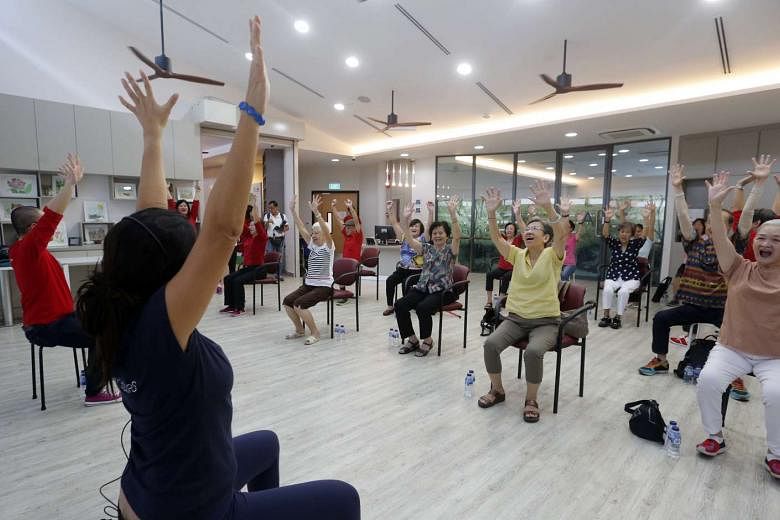SINGAPORE - Participation in physical therapy programmes may not reduce the number of falls for the elderly by much, but can help in reducing the severity of falls, according to the results of a new study.
A research team from Duke-NUS Medical School teamed up with Singapore General Hospital, Changi General Hospital and the Agency for Integrated Care to study the effects of tailored physical therapy on fall prevention for the elderly.
The Steps to Avoid Falls in Elderly (Safe) study recruited more than 300 patients above the age of 65 who sought medical attention for falls at emergency departments.
Half were randomly assigned to undergo additional structured therapy, while the other were not.
Patients in both groups, each with 177 people, were tracked for nine months following their fall. During this period, 54 people in the therapy group suffered another fall. This is just 13 fewer people than the 67 people who had falls in the control group.
However, in terms of injurious falls, the reduction was more apparent - 40 seniors in the control group had serious falls, compared to 25 in the intervention group.
The study also found that the personal health of the senior played a role in whether therapy is effective. Those with multiple existing illnesses like cancer or cardiac failure did not benefit as much from physical therapy.
Professor David Matchar, director of health services and systems research programme at Duke-NUS, said the study revealed a "sweet spot", in terms of identifying who would benefit from such a programme.
While he did not elaborate on the financial figures, he said: "We are looking at costs associated with falls and the falls-prevention programme. It's suffice to say there's a very good business case to be made for focusing on the sweet spot."

